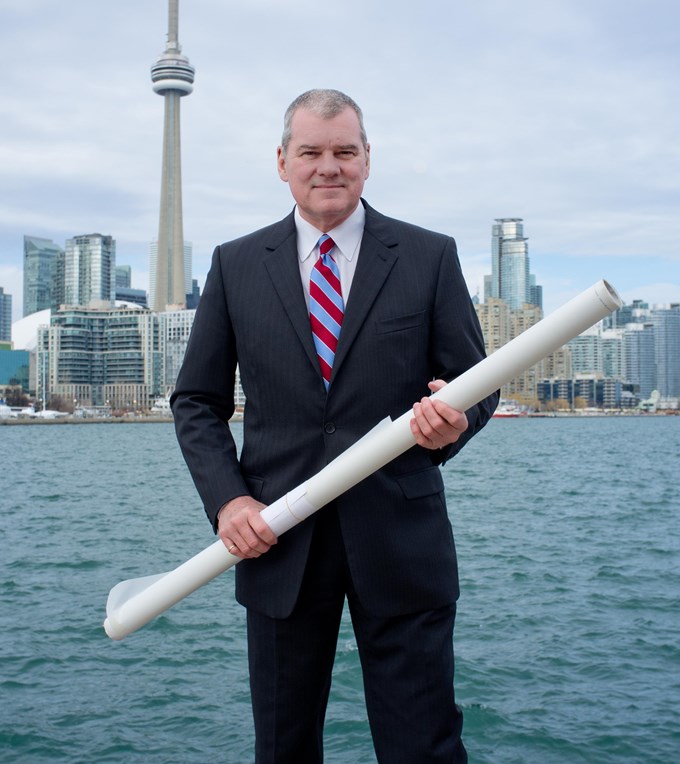Auckland Council is seeking feedback on its draft Civil Defence Emergency Management (CDEM) Group Plan. But the draft has already attracted feedback from a world leader in planning for major emergencies, Allan Bonner.
1) Tell us more about how your book Safer Cities of the Future came about?
When the Exxon Valdez oil spoil occurred almost 30 years ago, I was retained to write oil companies’ crisis plans, test their response capability in simulations on both coasts and inland. I was outraged as I watched the attempt to evacuate New Orleans in 2005 and began a 10-year urban planning study of the emergency plans of cities. A result is my book.
2) In your book, Auckland’s (CDEM) Group Plan (2011-2016) was named best prepared in a study of 100 English speaking cities. What aspects of Auckland’s plan stood out?
Auckland gets to the point by noting that only 7 per cent of its citizens are prepared. Auckland’s 'Recovery Manager' is a good idea. There’s little point in just responding, if you don’t also recover.
Auckland’s dramatic pictures and simulations of natural disasters are excellent. Auckland also notes potential psychological effects, which can be as pronounced as the physical manifestation of disasters.
3) You also mentioned that the Auckland Group Plan is one of the best in the world, because it precisely quantifies the cost of disaster. Please elaborate.
We can prepare and we can mitigate, which will save money and lives in the long run. Making more sturdy buildings and roads and multiple evacuation routes will keep businesses afloat during a disaster.
Auckland is wise to alert citizens to the economic costs of a disaster; double the impact of the Great Depression.
Now it’s time for the New Zealand government to help protect Auckland because the city is responsible for almost 40 per cent of the national GDP.
4) How can Aucklanders be better prepared for emergencies?
We all need to look in the trunks of our cars and ask if we have the supplies that can keep us safe for a few days on the side of the road. Do we have the same in our homes and offices?
How about first aid, prescriptions and helping elderly relatives evacuate or shelter. Auckland is special; it may be more vulnerable to volcanic eruption. This means evacuation immediately. It means disaster routes for emergency vehicles and evacuation routes for citizens. We need alternative means of transport and stockpiles of food at the end of the evacuation route.
5) The draft Auckland CDEM Group Plan (2016 – 2021) will be open for public consultation for the next three months. Why should Aucklanders make a submission?
"Public consultation and information is essential. Emergency planning is serious business. It is remarkably easy to miscommunicate. Public consultations can help us judge whether citizens understand the risks and are getting prepared."
6) Is there any room for improvement in the current CDEM Group Plan?
Auckland needs to finish its Standard Operating Procedures. We all need to explore how social media will help and hinder during emergencies.
Auckland’s 3,000 km of coastline is a wakeup call; it’s time to read the climate change reports from other cities that are battling shoreline erosion and rising water levels.
We are all vulnerable to infrastructure failure and Auckland is smart to recognize this.
We need alternative fuels, and an open, smart grid with small generation capacity in our homes and offices.
A pandemic can leave 30 per cent of the population sick, caring for loved ones or pretending to be sick. We need a plan to run our industries, schools and cities with fewer people. Now Auckland needs to test its plan with a really tough simulation.
Aucklanders can provide feedback on the draft CDEM Group Plan from 15 February to 18 April 2016 on shapeauckland.co.nz.
Bio information:
Allan Bonner has worked on some of the most controversial and public issues of our time. He has worked with heads of government, G7 and United Nations delegations, the WTO, NATO as well as CEOs and diplomats on five continents.
Allan was the first North American to be awarded an MSc in risk, crisis and disaster management from the first and best university in the world to offer such programs - Leicester in the UK. His work has been well received in the US, UK, and his native Canada. His combination of urban resiliency and crisis management has been called a neglected area of urban planning, and a breakthrough in reducing the isolated silos in which urban responders' work.


